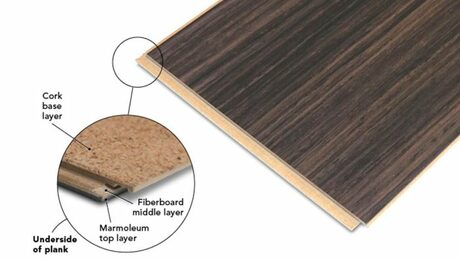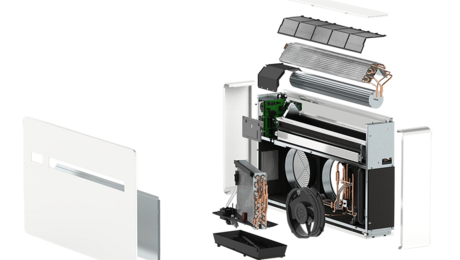Energy-Efficient Thermostat Regulating
I reside in a two story frame house heated with hydronic baseboard heating in zone 4A. This was constructed in the mid 2000s. The living area is on the first floor while the bedrooms are on the second.
The whole house is set to 71 degrees during the day. Should I drop the temperature at night to 50 degrees for the living area while keeping the bedrooms at 71? Which is more energy efficient?
GBA Detail Library
A collection of one thousand construction details organized by climate and house part









Replies
Ray,
You may find this discussion useful: https://www.greenbuildingadvisor.com/article/should-i-turn-down-radiant-floor-heat-at-night
I could be wrong, but I believe the setback issue only applies to heat pumps (or the issue with thermal lag in radiant floor systems as described in the article Malcolm linked). When all you're doing is burning a hydrocarbon, I don't think the time on (high demand in morning when you turn up thermostat) has any bearing on efficiency. In fact, I think short cycling is more likely to hit efficiency then a long hard burn. Not a heating system expert though so hopefully others will confirm.
You gain energy efficiency by lowering the temperature. The reason is that the heat loss through the insulation of the building envelope is in part dependent on the temperature differential between the temperatures inside and outside the home. Bigger temperature differentials mean greater loss of thermal energy, so lowering the inside temperature during heating season reduces that differential and also reduces heat loss. Your furnace is putting in "make up" energy to offset the heat lost through the building envelope, so if you lose less, you need to put less back in to maintain the temperature setpoint which means less work for the furnace to do and less fuel required to do it.
You'll probably find dropping the "rest of house" temperature to 50F is pretty extreme for two reasons: 1, it will take so long for a well insulated house to drop to 50F, even on a very cold night, that you'll probably never see it drop that much. For perspective, my house drops from 70F to 64F (my nightime setpoint) in about 6-8 hours when it's around 10F outside. 2, It will take a long time for your furnace to come back up to 71F from 50F, so you'll be cold for a while while things warm up. To use my home as an example again, it takes around an hour or so, maybe a bit over that, to go frmo 64F back to 70F.
I would recommend you use a "rest of house" setpoint of around 64F or so, which is what I use. It's noticeably colder, but not so cold that you would want to avoid moving around a little at night. I would also recommend you let your bedroom temperature drop below your 71F daytime setpoint while you're sleeping. Cooler temperatures are better for sleeping, and will also save energy. I let my bedroom go down to 64F too, and we use an electric blanket.
I have my own home setup to flip things during the day, where the bedrooms run a little lower, 66F, and the rest of the house 70F, since we aren't usually in the bedrooms much during the day. Play around with things until you get a mix of setpoints that works well for you, but I would recommend trying a lower nighttime temperature in your bedrooms, and a less extreme nighttime temperature than your proposed 50F for the rest of your home.
Note that hydronic systems are going to have more time lag for temperature chances compared to the forced air system I use in my home.
Bill
We turn off all heat at night. In our mild PNW winters, by morning the house is around 64F. One potential downside to letting the temperature fluctuate too much is it lowers the dew point of the interior air.
I've been tracking temp and humidity recently, and I've been surprised by how much dewpoint fluctuates. I expected to see it stay relatively steady (with some spikes when we shower and such and subtle drops when it gets really cold/dry outside). It's really quite spikey on an almost hourly basis. We do use pretty hard set-backs in this old leaky thing. I can't quite nail down the causation, but it seems like the dewpoint pretty closely tracks the temp (i.e. as temp rises, so does dew point).
Malcolm, what makes you say that temperature fluctuations would lower dewpoint?
The materials in the house (furniture, books and papers, etc.) buffer moisture. Their equilibrium moisture content is mostly determined by relative humidity--their buffering action will try to keep humidity constant. So if temperature goes up and dew point does not, the lower relative humidity in the air will lead them to shed moisture into the air, bringing the humidity back to the equilibrium value, and raising the dew point.
Yes, that makes sense. Though I'm surprised to see it happen in the timeframe that it apparently does according to my sensor. Sensor placement probably has some effect on this too (it's sitting near a wall with wood wainscotting).
It would be an interesting experiment to track temp/RH/dewpoint in a tight room with no hygroscopic materials, and then one filled with them. I suppose in theory the room with no hygroscopic materials would maintain a more even dew point and a less even RH as temp fluctuates.
Or if dewpoint rises at constant temperature, it's rise will be dampened by the buffering of the hygroscopy. The idea behind cellulose buffering within walls I suppose.
I'm still not clear on why fluctuating temp would net-lower dewpoint, but I can see how as temperature drops, dewpoint will drop with it.